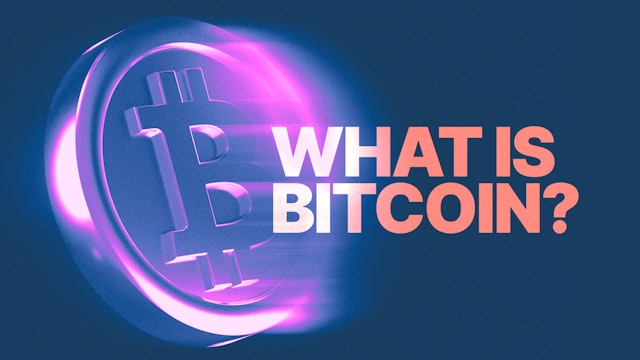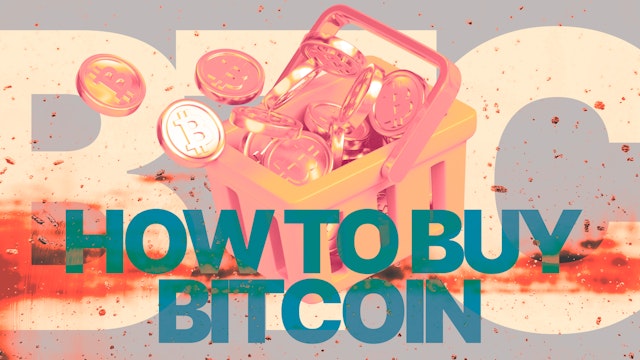Millennials Might Want to Inherit Bitcoin Over a Beach House. Here’s Why
Are traditional assets dated in the eyes of younger generations? Is the beach house out of fashion?
In this article...
- Millennials and Boomers may have different ideas about assets
- If you are writing your will, you may consider that younger generations have different ideas
- Bitcoin is portable and a beach house requires maintenance.

Imagine this: You've spent decades building a nest egg, complete with a sun-drenched house on the beach, or a cozy cabin in the mountains. It's the crown jewel of your legacy, a tangible symbol of hard-earned success. But when the time comes to pass it on, your millennial child takes one look and says, "Thanks, but I'd rather sell it and buy Bitcoin”.
Sound far-fetched? It's not.
As the great wealth transfer unfolds, with an estimated US$84 trillion shifting from baby boomers to younger generations over the next two decades, digital-native heirs are flipping the script on inheritance.
Millennials, in particular, are eyeing crypto-first portfolios over traditional assets like real estate, signaling a seismic shift in how generational wealth is preserved and grown.
This is a calculated pivot driven by economic realities, technological fluency, and a hunger for assets that match their fast-paced, borderless lives.
The Great Wealth Transfer: A Multi-Trillion Tsunami for Millennials
The numbers are staggering. By 2045, millennials (born between 1981 and 1996) are poised to inherit trillions from their boomer grandparents and Gen X family members (born 1965–1980).
This influx, part of the broader $84 trillion handover, dwarfs any previous generational shift and could reshape global markets. But here's the twist: While older generations built wealth on stocks, bonds, and real estate, millennials are more likely than any other generation to channel their windfalls into digital frontiers.
Surveys paint a clear picture of this preference. A Charles Schwab poll of over 2,200 investors revealed that 62% of millennials plan to allocate their next investments to cryptocurrency products like Spot ETFs, outpacing U.S. stocks and fixed-income options.
Among those already invested, 62% of millennials report that crypto comprises at least a third of their portfolios. This is a stark contrast to boomers' conservative leanings.
Crypto ownership has surged, in the USA at least. 40% of all Bitcoin that exists is owned by American residents.
There are new economic conditions that could be driving this. With real estate prices skyrocketing in urban hubs, not just in the USA but all over the world, millennials face barriers their parents and grandparents never did.
High down payments, escalating interest rates, and maintenance headaches make physical properties less appealing for a generation juggling gig economies and student debt.
Why Crypto Could Appeal to Digital-Native Heirs
Millennials grew up with smartphones in hand and the internet as their playground. Internet banking makes complete sense to them.
Enter Bitcoin and the broader crypto ecosystem which transcends borders.
Unlike a beach house that ties you to one location and demands ongoing upkeep, Bitcoin is infinitely portable. You can transfer millions in value across the globe in minutes, for a fraction of the fees charged by banks or payment apps.
This liquidity is a game-changer for millennials who prioritise experiences over material items.
Growth Potential: The High-Upside Bet
Crypto's volatility is infamous. But there’s no denying that Bitcoin’s price, through the ups and down, has been on a trajectory that overall is up.
Real Estate has also been a great investment for boomers and Gen X, with the exception of some truly awful crashes in certain parts of the world.
For heirs expecting lump-sum inheritances, the question is, “What will give me the best return on my investment into the future?”
Will Millennials keep a $500,000 beach house? With all of the bills that come with it, expecting the real estate prices to always go up? Or will they sell the beach house and put the money into cryptocurrencies?
Experts like those at VanEck predict up to US$6 trillion from inheritances will flow into crypto assets will be inherited by 2045, fueled by young investors allocating a fair chunk of their windfalls to digital assets.
Without these inheritances, most young people can’t afford investment properties, and may invest in digital assets in the meantime, which are cheaper to buy into.
They will learn how to use cryptocurrencies and invest in other digital assets. By the time Boomers and Gen X pass on their wealth, the Millenials may have lost interest in real estate.
As digital natives, the vast majority of millennial investors are aware of crypto, even more aware than Gen X. Except that Gen X spend way more on it than Millenials.
Bitcoin: Is it an Impending Virtual Real Estate Revolution?
Cryptocurrencies like Bitcoin could possibly be the "new real estate," in the future, but without the leaky roofs. Crypto has not yet flipped real estate investments in Millenials, but it has a good chance at it.
Bitcoin's fixed supply of 21 million coins could make it seem scarcer than prime oceanfront property, positioning it as a store of value for the digital age.
For millennials locked out of hyper-inflated housing markets, Bitcoin could promise a way into the investment landscape at a much lower financial entry point. After all, there is no need for a 20% down payment or decades-long mortgage. They just need to sign up to a crypto exchange, buy crypto, and transfer it to an external wallet, and adopt a long-term hold strategy.
The price of crypto could go down, and it could be a terrible investment over time. But that’s also possible for a real estate investment, and of course, other investments like shares could crash too.
But what we do know is that it is reasonable to assume that a large slice of the $84 trillion wealth transfer pie could flow into crypto over the next decade, with $10 trillion estimated to head into Bitcoin alone. While this is just a guesstimate by analysts, it does make for interesting reading.
As boomers pass the baton, their heirs are being watched with fascination. Which way will they go with their investing strategy?
Is There a Smooth Handoff Available?
For boomers planning a beach house legacy: Talk early. Consider that Bitcoin might be a part of assets that you will hand down. Presently, it may be a way to diversify. But keep in mind that real estate still remains a top pick across generations.
Young people diversifying into digital assets isn't a rejection of family legacy, it's an evolution and a sign of the times. We all are watching with fascination.

Suggested Articles

Bitcoin and Politics: Key Developments
Crypto may be deeply involved politics now, and it seems there is no going back. But is this a win for Cryptoland?Read more
Bitcoin for Beginners: A Complete Guide to the World’s First Cryptocurrency
Unpacking the history, technology, and mechanics behind the digital asset that helped spark a new kind of money. Read more
Getting Started: How to Buy Bitcoin on CoinJar
A step-by-step guide to purchasing your first cryptocurrency and understanding how a trade works.Read moreBrowse by topic
CoinJar’s digital currency exchange services are operated by CoinJar Australia Pty Ltd ACN 648 570 807, a registered digital currency exchange provider with AUSTRAC.
CoinJar Card is a prepaid Mastercard issued by EML Payment Solutions Limited ABN 30 131 436 532 AFSL 404131 pursuant to license by Mastercard. CoinJar Australia Pty Ltd is an authorised representative of EML Payment Solutions Limited (AR No 1290193). We recommend you consider the Product Disclosure Statement and Target Market Determination before making any decision to acquire the product. Mastercard and the circles design are registered trademarks of Mastercard International Incorporated.
Google Pay is a trademark of Google LLC. Apple Pay is a trademark of Apple Inc.
This site is protected by reCAPTCHA and the Google Privacy Policy and Terms of Service apply.

